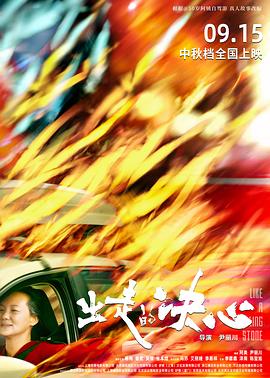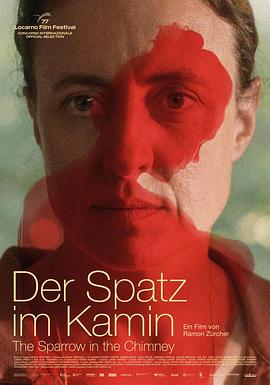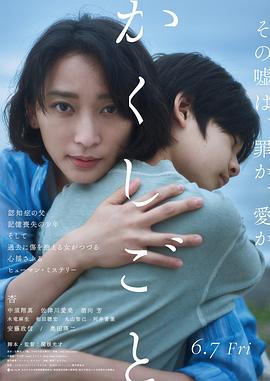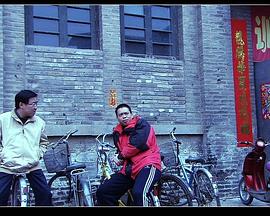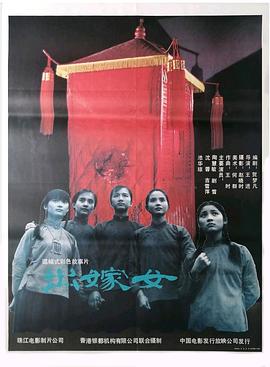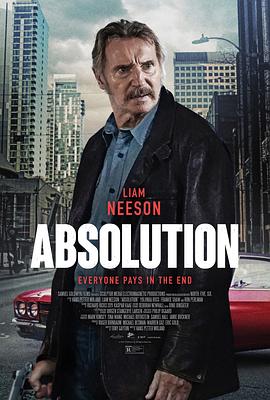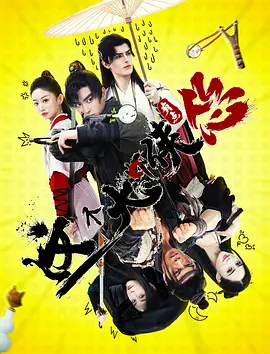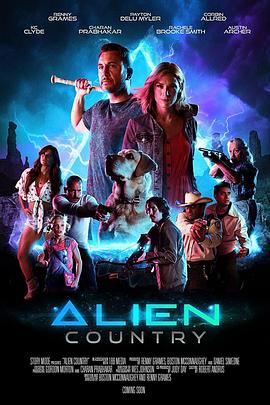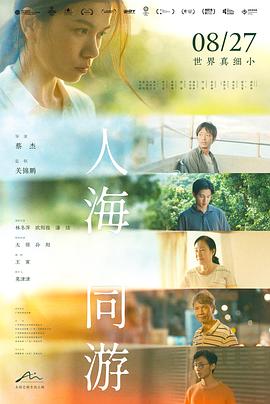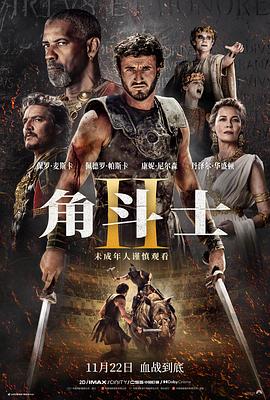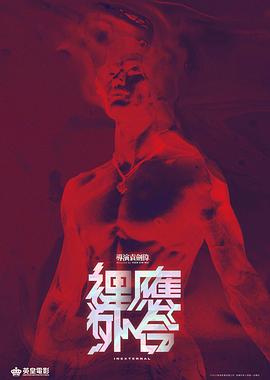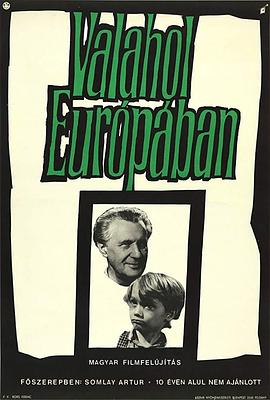
上映:
1948-11-19
备注:
HD中字
豆瓣:
欧洲的某个地方
TAG:
剧情:
Somewhere in the remote region, the war ends. In the midst of ruined cities and houses in the streets, in rural hamlets, everywhere where people still live, are children who have lost their homes and parents. Abandoned, hungry, and in rags, defenseless and humiliated, they wander through the world. Hunger drives them. Little streams of orphans merge into a river which rushes forward and submerges everything in its path. The children do not know any feeling; they know only the world of their enemies. They fight, steal, struggle for a mouthful of food, and violence is merely a means to get it. A gang led by Cahoun finds a refuge in an abandoned castle and encounters an old composer who has voluntarily retired into solitude from a world of hatred, treason, and crime. How can they find a common ground, how can they become mutual friends The castle becomes their hiding place but possibly it will also be their first home which they may organize and must defend. But even for this, the price will be very high. To this simple story, the journalist, writer, poet, scriptwriter, movie director, and film theoretician Béla Balázs applied many years of experience. He and the director Géza Radványi created a work which opened a new postwar chapter in Hungarian film. Surprisingly, this film has not lost any of its impact over the years, especially on a profound philosophical level. That is to say, it is not merely a movie about war; it is not important in what location and in what period of time it takes place. It is a story outside of time about the joyless fate of children who pay dearly for the cruel war games of adults. At the time it was premiered, the movie was enthusiastically received by the critics. The main roles were taken by streetwise boys of a children's group who created their roles improvisationally in close contact with a few professional actors, and in the children's acting their own fresh experience of war's turmoil appears to be reflected. At the same time, their performance fits admirably into the mosaic of a very complex movie language. Balázs's influence revealed itself, above all, in the introductory sequences an air raid on an amusement park, seen in a montage of dramatic situations evoking the last spasms of war, where, undoubtedly, we discern the influence of classical Soviet cinematography. Shooting, the boy's escape, the locomotive's wheels, the shadows of soldiers with submachine guns, the sound of a whistle—the images are linked together in abrupt sequences in which varying shots and expressive sharp sounds are emphasized. A perfectly planned screenplay avoided all elements of sentimentality, time-worn stereotypes of wronged children, romanticism and cheap simplification. The authors succeeded in bridging the perilous dramatic abyss of the metamorphosis of a children's community. Their telling of the story (the scene of pillaging, the assault on the castle, etc) independently introduced some neorealist elements which, at that time, were being propagated in Italy by De Sica, Rossellini, and other film artists. The rebukes of contemporary critics, who called attention to formalism for its own sake have been forgotten. The masterly art of cameraman Barnabás Hegyi gives vitality to the poetic images. His angle shots of the children, his composition of scenes in the castle interior, are a living document of the times, and underline the atmosphere and the characters of the protagonists. The success of the picture was also enhanced by the musical art of composer Dénes Buday who, in tense situations, inserted the theme of the Marseilaise into the movie's structure, as a motive of community unification, as an expression of friendship and the possibility of understanding. Valahol Europaban is the first significant postwar Hungarian film. It originated in a relaxed atmosphere, replete with joy and euphoria, and it includes these elements in order to demonstrate the strength of humanism, tolerance, and friendship. It represents a general condemnation of war anywhere in the world, in any form.
收起
相关影片
2024
剧情片
中国大陆
HD
2023
剧情片
中国台湾
HD
2024
剧情片
瑞士
HD
2024
剧情片
日本
HD
2008
剧情片
中国大陆
HD
1990
剧情片
中国大陆,中国香港
HD
2024
剧情片
欧美
连姆·尼森 朗·普尔曼 弗兰西斯·肖 丹尼尔·迪默 汉斯·皮特·莫朗 尤隆达·罗斯 Deanna Tarraza 吉米·冈萨雷斯 Levon Panek 瑞安·霍姆奇克 Matthew Delamater Terrence Pulliam 哈维尔·莫利纳 乔什·德伦宁 Tom Kemp Bruce Busta Soscia 威廉·泽法尔茨 凯特·阿瓦洛尼 Omar Moustafa Ghonim Nicholas Delany
一名年迈的圣佩德罗歹徒试图与他的孩子们重新联系,并纠正他过去的错误,但犯罪的黑社会不会自愿放松他们的控制。
第1集
2024
剧情片
新西兰
伊丽莎白·班克斯 米奇·萨姆纳 西蒙·迈克伯尼 弗恩·萨瑟兰 丽纳·欧文 乔尔·托贝克 拜伦·科尔 马修·桑德兰 埃米特·斯基尔顿 伊恩·休斯 理查德·克劳奇利 Ella Hope-Higginson Nick Dunbar Niwa Whatuira Acacia O Connor Sam Wang Ally Xue Emma Draper Amelia Reynolds Sahil Arora
伊丽莎白是一位天才外科医生,也是医院里唯一的女性顾问。但在为一位年轻女性做手术时,事情发生了可怕的变化。在一项公开报告外科医生表现的新计划中,她的同事们开始团结起来,伊丽莎白的生活陷入混乱。伊丽莎白坚
正片
HD
2023
剧情片
中国大陆
HD
2024
剧情片
欧美
保罗·麦斯卡 佩德罗·帕斯卡 丹泽尔·华盛顿 康妮·尼尔森 约瑟夫·奎恩 弗莱德·赫钦格 德里克·雅各比 马特·卢卡斯 彼得·门萨 梅·卡拉美维 蒂姆·麦克纳尼 利奥·拉兹 瑞安娜·杜斯 奇迪·阿朱福 李·查尔斯 齐·刘易斯-帕里 迈克·帕里什 米哈伊尔·巴斯马吉安 亚历山大·西姆金 马克西姆·杜兰德
影片故事延续前作,路奇乌斯(保罗·麦斯卡 Paul Mescal 饰)童年时亲眼目击受万人景仰的英雄马克西蒙斯死于舅舅之手,多年后已长大成人的他,在暴君的铁腕统治下,被迫进入竞技场为生存而战。心中充满怒火的卢修斯,眼见罗马帝国的未来岌岌可危,决心讨回本属于他的权力和荣誉,还 罗马人民一个辉煌的罗马。
第1集
2024
剧情片
中国香港
正片
2021
剧情片
台湾
惨遭雷击而死的阿纶(柯震东饰)来到阴间,生前所有的记忆归零。他必须做出选择:投胎转世却可能变成蜗牛;或是担任神职,累积阴德再修转世为人的正果?阿纶决定成为月老新鲜人,他与个性爆冲粉红女Pinky(王净饰)搭档,来到人间执行任务,当阿纶遇见狗狗阿鲁以及牵着他的主人小咪时,他前世的记忆都回来了,小咪(宋芸桦饰)就是他生前的挚爱。阿纶希望能帮助阳间的小咪寻得新的姻缘,但每一条绑在小咪手上的红线竟然都被烧毁。原来,有些事,一万年也不会变……同一时间从阴间逃到人间的鬼头成(马志翔饰),展开腥风血雨的复仇行动,找上五
第1集
2024
剧情片
欧美
第1集

